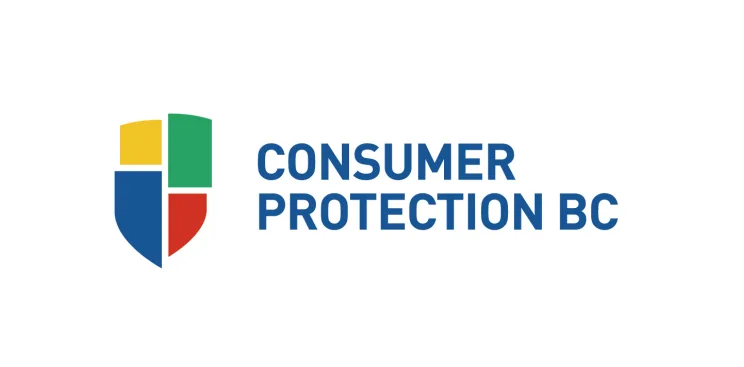
Only legal professionals can draft a legal contract.
A contract is a legally recognized agreement made between two or more people. In most cases, a contract doesn’t have to be in writing. But it’s a good idea to put a contract in writing, even if the law doesn’t require it.
What you should know
Some kinds of contracts must be in writing — for example, when the sale of real property is involved.
But even where it’s not legally required, a written contract can be extremely useful. Especially if something expensive is on the line. For example, if you’re:
buying or selling a car
hiring someone to do home improvements
buying or selling an electronic device
offering your services to an employer
If a problem arises, you can go back to the written contract rather than argue over “who said what” when the agreement was reached.
(That said, while most day-to-day transactions — like buying a coffee — are in fact contracts, they don’t all rise to the level of making a written agreement. That would make life wildly cumbersome.)
Contracts have three essential elements:
Agreement. The people making the contract (called “the parties”) must agree or have a “meeting of the minds” on what has been decided in the contract. The agreement is formed by one party making an offer to contract with the other on certain terms. The other party then freely indicates their acceptance of those terms.
Consideration. There must be an exchange of something of value to each side. Most often, money goes one way and some item goes the other way. But money needn’t be involved. Services could be exchanged. For example, you offer to fix your hairdresser’s car and get a haircut in return. Whatever is to be paid or done is called consideration.
Intention. For an agreement to be legally enforceable as a contract, both parties must intend to be legally bound by their promise.
A contract won’t be legally valid unless everyone involved had the legal capacity to enter into it. That means everyone understood what the contract says. And everyone understood what the contract meant for them.
You can’t make a legal contract if your mental state prevents you from understanding the implications of it. For example, if you were very drunk, you could ask that any contract you agreed to while in that state be cancelled.
There are also specific rules around minors. If someone is under the age of 19, they can enter into a contract, but the other side can’t typically enforce it (as in, the minor can get out of it for most any reason). An exception here is for contracts for the “necessaries of life”, like food or shelter, where the other side can enforce the contract against the minor.
A contract also isn’t legally valid if you were pressured into making it. For example, if someone threatens to rough you up unless you agree to sell your car to them, this is not a valid contract. You didn’t enter the agreement voluntarily. “Coercion” or “duress” void the deal.
Make sure you're dealing with someone in an authoritative position
You should only form a contract with someone who has the authority to carry out the contract. For example, if you are contracting with a business, you should make sure to deal with the business owner or CEO.
The terms must be specific for a contract to be legal. You could not write a contract with these terms:
Yvonne agrees to do something for Susan, to be determined later, in exchange for Susan’s payment of whatever money she has at that point.
These terms are unclear; there is no certainty about what will be done, when it will be done, or what will be given in return. This contract is unenforceable, even if both parties agree to it.
Write the contract in six steps
You can use our template for a basic contract to get you started. Before using the template, be sure to read the steps below on how to write a contract.
Write the name of the contract at the top of the page. Follow with the names or company names of all parties, in this format:
This agreement is between ____ and ____.
Contracts involving a business should include the business’ full legal name, including descriptions such as “Ltd.” or “Inc.”
If there’s any other identifying information you want to include, such as a person’s address or title, put it here.
You should also include the date of the contract.
If one of the parties is an incorporated entity
If a party to a written contract is an incorporated entity, like a company, the company’s name must be written correctly in the contract:
at the top where the parties are named,
throughout the contract where the things each party is agreeing to do are described, and
at the end where the parties sign.
For example, if you have a company for your website design work, it is your company and not you personally that would enter into contracts to design websites.
Write the contract in plain language
The contract should be written in clear, plain language that’s easy to understand. This will help everyone know what they are agreeing to.
Describe what things of value are being exchanged. Write clearly what one party is promising to deliver and what the other agrees to pay or do in exchange.
If services are part of the deal, state:
what services will be performed
who will perform the services, for whom, where, when, and for how long
what will the person get for performing the services
For example, you could write:
Catherine Thomas agrees to copy edit a 250-page manuscript for Jones Publishing by July 15, 2025. For these services, Catherine Thomas will be paid a flat rate of $4,000.
If goods are involved in the exchange, state the make, model, size, colour, and any other identifying details of the goods. Also write in the delivery date.
If money is exchanged, specify the method of payment, and whether payment will be made in one lump sum or in multiple installments.
If you are buying or selling real property, provide a legal description of the property and its exact location.
Contracts involving real property must be in writing
In British Columbia, contracts involving real property must be in writing. A lawyer or notary public can help you by searching the title to the property, preparing and reviewing purchase documents, and ensuring that the legal transfer is registered in the land title office.
Describe how the contract will be completed. For example, if the contract is for a one-time exchange of services, state that the contract will end once the services are delivered. If it’s a contract for ongoing services, you may want to say that either party may end the contract by giving 30 days’ notice.
Include information in the contract about what will happen if someone doesn’t do what they promised to do. For example:
If Catherine Thomas does not complete the services of copy editing a 250-page manuscript for Jones Publishing by July 15, 2025, this contract is no longer valid.
(A legal term sometimes used to describe when a contract is no longer valid is “null and void.”)
Be aware that a minor breach of contract may not make the whole contract invalid. For example, if Catherine Thomas was contracted to copy edit a 250-page manuscript for Jones Publishing by July 15, 2025, but only completed 175 pages, this would likely be considered a minor breach. Because Catherine completed a substantial amount of the work and appeared to have made a good-faith effort to fulfill the contract, it’s unlikely that Jones Publishing could completely cancel the contract. However, they probably could be eligible for some sort of remedy, such as paying a reduced rate.
Some laws are provincial and some are federal. Make clear which laws you have in mind when you write the contract. Should a dispute arise, a court or other decision-maker will now know what law you intended to apply to your contract.
For example:
The laws of British Columbia and the laws of Canada applicable in that province govern this agreement.
Write down specific ways you’ll resolve any dispute. Consider adding a mediation or arbitration clause. These are ways to resolve disputes that are less expensive and time-consuming than a court action (also known as litigation).
For example, a mediation clause might read:
If a dispute arises out of or relates to this agreement, and the dispute can't be resolved by negotiations between the parties, the parties agree first to try in good faith to resolve the dispute by mediation before resorting to arbitration, litigation or some other dispute resolution procedure.
If a dispute has to go to court, state where that will be:
The parties agree that the courts of British Columbia will have exclusive jurisdiction to hear and decide any litigation which may arise out of or relates to this agreement.
Put spaces on the last page of the contract for each party to sign, with the date.
Signing the contract
When you and the other party agree about the content of the contract, sign and date it. Have them do so as well. You don’t have to be together to sign the contract. See more on signing a contract.
Who can help

Consumer Protection BC
Assistance relating to certain types of consumer problems and contracts in BC.


